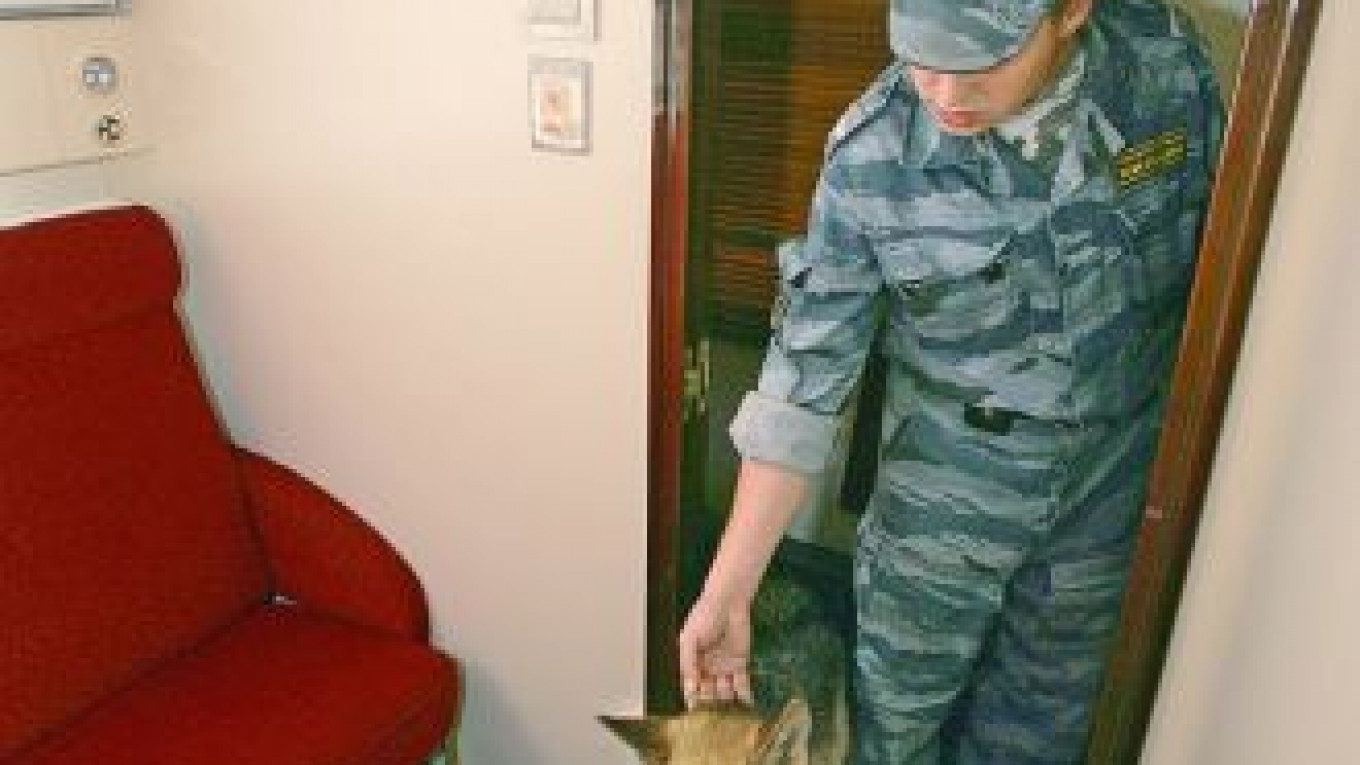Transit safety watchdog Rostransnadzor is considering raising fines and imposing pre-emptive criminal charges for transportation operators who shirk safety regulations, the service’s deputy head, Vladimir Chertok, said Tuesday.
“We have created a situation where it is more profitable for businesses to save money, pay the fine,” Chertok said. “We need to lift fines to such a level that it will be unprofitable for businesses to break [safety laws].”
Chertok estimated that economic sanctions for breaking safety regulations in the case of the river cruise ship Bulgaria sinking last summer would have been about 40,000 rubles ($1,240), whereas the potential profit for cutting corners on those measures was 400,000 rubles.
Higher fines would discourage transportation operators from taking risks, he said. Rostransnadzor drafted a proposal for new sanctions, which has been introduced in the State Duma for review.
Chertok did not give details on the proposal but voiced support for raising fines by as much as 10 times as well as allowing operators to be criminally charged for disregarding safety regulations. According to current laws, operators are charged only after their safety shortcuts result in an emergency.
“We are warning businesses that the most important thing is the lives and health of citizens,” Chertok said. “All the commerce issues, commercial profit, are in second place.”
The harsher measures are in line with the transportation safety program that the federal government approved in July 2010. But some experts say raising fines will only shift the burden onto passengers by leading to higher ticket prices.
“The bag of money we will have to hand over for a single ticket is going to get bigger, and the situation won’t improve,” said Dmitry Zhuravlev, general director of the Institute of Regional Problems, an analytical center.
Transportation operators are also opposing the proposed harsher safety measures, said Alexander Starovoitov, deputy chairman of the Duma’s transportation committee.
The transportation committee will convene an expert council Friday to discuss the changes. The council will include a balance of business and government representatives, Starovoitov said.
Russians consider trains and trams the safest types of transportation, according to a study the Russian Public Opinion Center released this week. Taxis and water transportation received the lowest confidence rating.
A Message from The Moscow Times:
Dear readers,
We are facing unprecedented challenges. Russia's Prosecutor General's Office has designated The Moscow Times as an "undesirable" organization, criminalizing our work and putting our staff at risk of prosecution. This follows our earlier unjust labeling as a "foreign agent."
These actions are direct attempts to silence independent journalism in Russia. The authorities claim our work "discredits the decisions of the Russian leadership." We see things differently: we strive to provide accurate, unbiased reporting on Russia.
We, the journalists of The Moscow Times, refuse to be silenced. But to continue our work, we need your help.
Your support, no matter how small, makes a world of difference. If you can, please support us monthly starting from just $2. It's quick to set up, and every contribution makes a significant impact.
By supporting The Moscow Times, you're defending open, independent journalism in the face of repression. Thank you for standing with us.
Remind me later.






